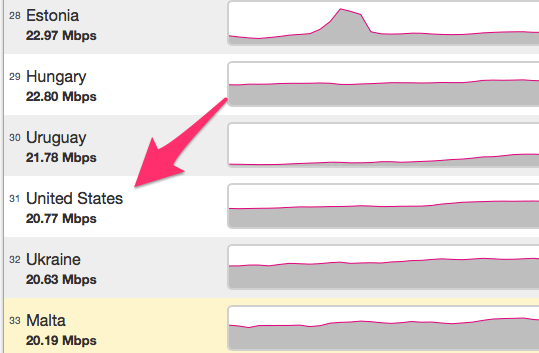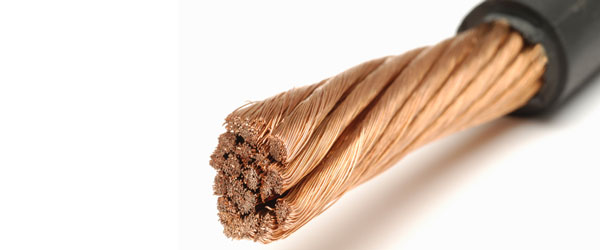Tag Archives: Time Warner
So Netflix seems to be doing OK

I don’t know how many of you remember this, but a few years ago there was a big debacle when Netflix wanted to separate out its streaming and disc delivery services, and to be fair the Qwikster name by which it would do so was a bad choice. It barely worked for SpongeBob, it would never work for Netflix.
You see, what happened was, Netflix allowed for people to have an account that included both delivering DVDs and streaming, however they wanted to split those services into two separate things. That’s completely understandable, however clumsy name aside, it would also require re-registering two accounts with them and include a price hike as well.
You’d better watch this video right now.
This post will dovetail with the one below, so you might want to read them together.
Are you familiar with Net Neutrality? If not, you should be. It’s one of the single most important technical challenges we are facing as a country, and as a global community. The Internet is under regulatory attack on two separate fronts, and no one seems to care. As crazy as we go over soccer or the Kardashians or legalizing pot, the future of the Internet just doesn’t get a lot of public attention.
But it should. Because we may be on the brink of losing the Internet as we know it.
The first issue is the handover of ICANN, the organization that controls the creation and control of web addresses, from the control of the United States. Honestly, it’s not really under the control of the United States, as other governments have a say in issues that come up, but it’s headquartered in California and it’s generally considered that we’re the final authority. It wouldn’t normally bother me that a global entity such as ICANN ends up under global control, except the countries that really fought to have it released include Russia, China, and North Korea, some of the most oppressive countries on earth when it comes to the flow of information and the right of people to voice opinions. They couched it in terms of concern over security in light of the Snowden leaks, as have other countries, however I’m of the firm belief they so desperately want this to happen so they can more heavily regulate what appears online, especially dissent.
But the much, much more immediate threat is the end of Net Neutrality. Net Neutrality essentially means all Internet traffic is treated equally, and no one’s data is more important than anyone else’s.
 However, with appointment of former cable-company lobbyist Tom Wheeler as head of the FCC, the bizarre decision by the Supreme Court to end legal requirements to maintain Net Neutrality, and the impending merger of two of the largest cable providers in the country, Net Neutrality has a fight of Biblical proportions in front of it.
However, with appointment of former cable-company lobbyist Tom Wheeler as head of the FCC, the bizarre decision by the Supreme Court to end legal requirements to maintain Net Neutrality, and the impending merger of two of the largest cable providers in the country, Net Neutrality has a fight of Biblical proportions in front of it.
If it ends, that means some services will be forced to pay for better service for their customers. For example Netflix would pay Comcast to not slow down their service, but that would mean a higher cost that Netflix would have to pass on to you. Or, if a cable company has an investment in one service, they could stifle the speed of a competitor that you are using making it unusable. We have already seen the issue crop up. The Internet will never be the same; you will be charged more for inferior services, and be at the mercy of the providers.
However, after typing all this, rather than typing another 1000 words I am just going to let John Oliver explain it. He does an outstanding job. shows charts and graphs that really illustrate the problem, and you’ll have a good chuckle along the way. Don’t miss it, it’s a very, very important issue that can end up impacting all of us.
Data speed record broken with existing copper wire
One of the big problems we are having these days is that our Internet speeds simply aren’t fast enough. If the extent of your Internet usage is reading webpages and checking email then it likely is, but anything beyond that and you’ve probably said to yourself ‘this connection is slow.’ Slow connections can manifest in many ways including blurry video, slow file downloads, long page-load times, and others. Not only that, even if you have a fast connection, many, many other aspects can affect your speeds. Speed of the transmitter, conditions on the network, type of conduit, and so on.
Cable companies offer tiered packages, but do you really get faster speeds? You might, but as any cable company will have written in their agreement with you, those advertised speeds are not guaranteed.
Coupled with the fact that the U.S. lags woefully behind many other countries for high-speed Internet access and the much-vilified potential merger of not just the two largest cable companies in the country but the two most hated as well – Time-Warner and Comcast – the future doesn’t look good. (Below graphic from gottabemobile.com)
But there are some bright spots. Google has been laying down superfast fiber in some cities, and some regional ISPs are doing the same even while those cities try desperately, and I mean desperately, to stop it. Even CenturyLink offers high-speed fiber in some areas of North Las Vegas. Traditional cable companies are scared.
The big problem with fiber is it requires a whole rebuilding of the network infrastructure, ripping up roads, yards, and utilities, putting new hardware in place: The cost for Google alone could rise into the billions, with the cost of a country-wide revamp costing much, much more. And even with fiber, the wire that actually goes into your house, known as the last mile, is still copper although similar advancements have been made there as well.
But there may be hope for us all yet, and perhaps a hidden respite for the beleaguered cable companies. Researchers at Bell Labs managed to create record-breaking speeds of 10 Gigabits per second across plain old copper wire (press release from Alcatel-Lucent at this link). That’s crushingly fast, especially since most of us deal with speed in the Megabits per second, and even fiber provides around 1 Gigabit per second. In other words, it’s one thousand times faster than what most of us deal with right now.
If a technology like this could be deployed, it could be a huge boon. Existing infrastructure could be used, costs could be kept down, availability of fast broadband could be accessible to almost everyone, streets wouldn’t need to be ripped up, and the U.S. could hopefully not be in the embarrassing position of having such poor broadband access. On the other hand, this was a lab experiment, and the L:R ratio (lab-to-reality ratio, a term I just made up) can be years for this kind of thing. Still, it’s a promising development.



